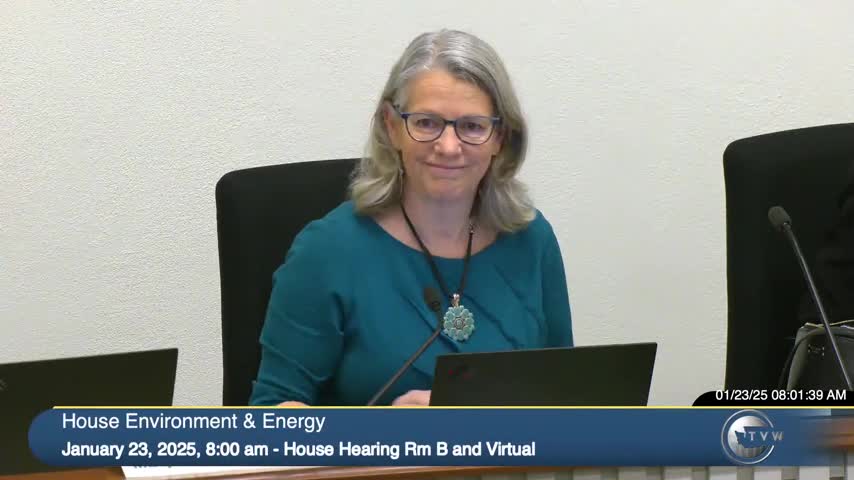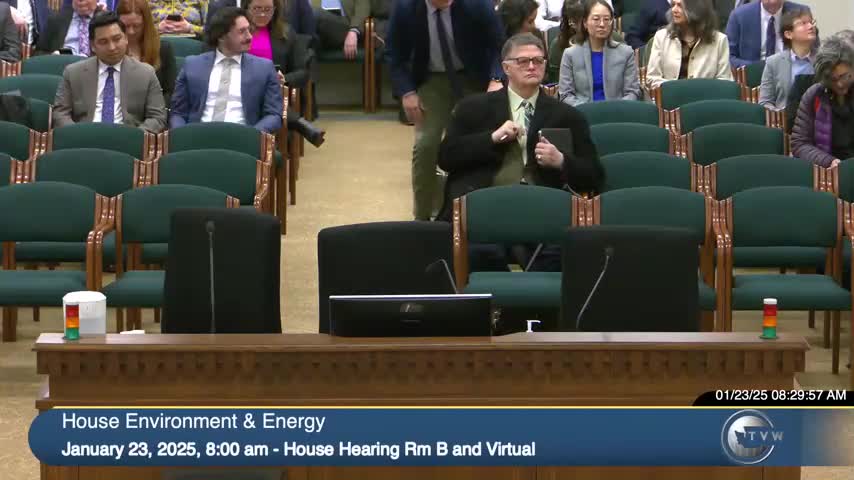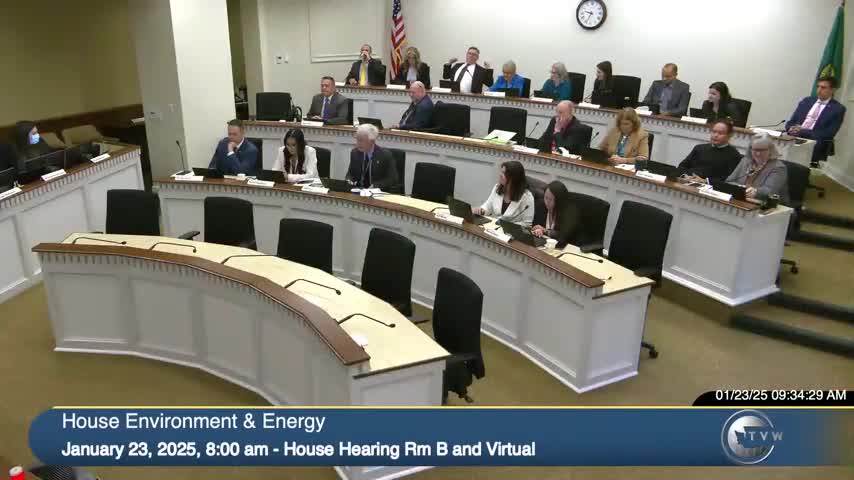Article not found
This article is no longer available. But don't worry—we've gathered other articles that discuss the same topic.

Committee considers HB 1329 to clarify short‑term power purchases under Clean Energy Transformation Act

Committee hears HB 1303 (CURB Act) to add environmental justice review to SEPA and restrict some permits in overburdened areas

